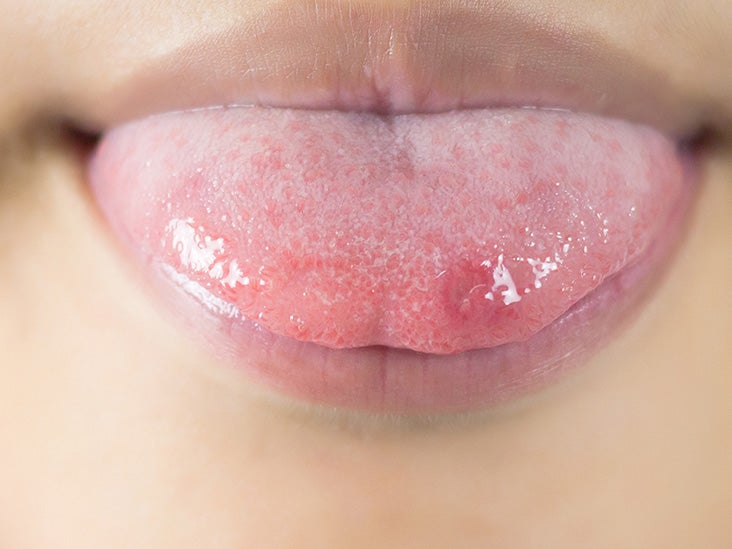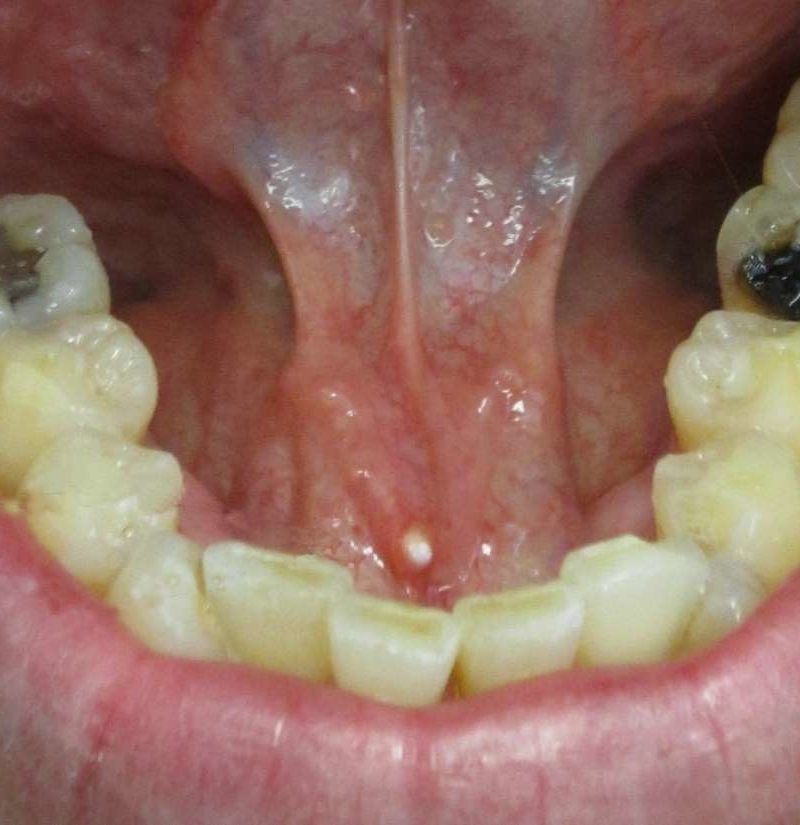Does Putting Salt Under Your Tongue Make You Hard? Exploring The Science Behind This Claim
Putting salt under your tongue is a topic that has sparked curiosity and debate in recent years. Many people wonder if it has any scientific backing or if it's purely a myth. This article aims to provide a comprehensive understanding of the concept and its implications. Does putting salt under your tongue make you hard? Let's dive into the details to find out.
This intriguing question has been circulating in various forums and discussions. People are eager to understand the potential effects of salt on physiological responses. With the rise of alternative health practices, it's essential to separate fact from fiction. In this article, we will explore the science behind this phenomenon and its relevance to human health.
By the end of this article, you will have a clear understanding of whether this practice holds any merit. We will also discuss the importance of making informed decisions about health-related practices. Stay tuned as we delve deeper into this fascinating topic.
Read also:Matt Rife Political Views A Comprehensive Insight Into His Ideologies And Influence
Table of Contents
- The Biological Process Behind Salt Absorption
- Effects of Salt on the Body
- Scientific Studies and Findings
- Is It a Myth or Fact?
- Health Implications of Salt Intake
- Safe Practices When Using Salt
- Alternative Methods to Enhance Physiological Responses
- Frequently Asked Questions
- Conclusion
- References
The Biological Process Behind Salt Absorption
Salt, or sodium chloride, is absorbed through the mucous membranes under the tongue. This process is known as sublingual absorption. When salt is placed under the tongue, it dissolves quickly and enters the bloodstream through the capillaries in the oral cavity. This rapid absorption bypasses the digestive system, allowing substances to take effect more quickly.
How Does Sublingual Absorption Work?
Sublingual absorption is a unique process that allows certain substances to enter the bloodstream directly. Here are the key steps:
- Salt dissolves in saliva.
- The dissolved ions pass through the mucous membranes.
- Capillaries absorb the ions and transport them to the bloodstream.
This method is often used for medications that require quick action, such as nitroglycerin for heart conditions. However, the effects of salt on physiological responses are still under investigation.
Effects of Salt on the Body
Salt plays a crucial role in maintaining electrolyte balance and nerve function. It is essential for muscle contractions, fluid regulation, and overall health. However, excessive salt intake can lead to negative health effects, such as high blood pressure and cardiovascular issues.
Does Salt Influence Physiological Responses?
While salt is vital for bodily functions, its impact on specific physiological responses, such as arousal, is not well-documented. Some theories suggest that the rapid absorption of sodium may temporarily affect blood flow and nerve activity. However, these effects are generally mild and short-lived.
Scientific Studies and Findings
Research on the effects of sublingual salt absorption is limited. Most studies focus on the general effects of salt on the body rather than its specific role in enhancing physiological responses. A study published in the Journal of Physiology found that sodium levels can influence blood pressure and heart rate, but no direct link to arousal was established.
Read also:Unveiling The Inspiring Journey Of Kayla Boydjones A Rising Star In The Spotlight
Key Findings from Recent Studies
- Sodium absorption can temporarily increase blood flow.
- Sublingual absorption may enhance nerve activity in some cases.
- Long-term effects of excessive salt intake are detrimental to health.
While these findings provide insight into the role of salt in the body, they do not conclusively support the claim that putting salt under your tongue makes you hard.
Is It a Myth or Fact?
Based on current scientific evidence, the claim that putting salt under your tongue makes you hard is more of a myth than a fact. While salt can influence certain physiological processes, its effects on arousal are negligible. It is important to approach such claims with skepticism and rely on credible sources for information.
Why Does This Myth Persist?
Myths often persist due to anecdotal evidence and misinformation. People may report feeling a temporary increase in energy or focus after using salt sublingually, attributing it to enhanced arousal. However, these effects are likely psychological rather than physiological.
Health Implications of Salt Intake
Excessive salt intake can have serious health implications, including high blood pressure, heart disease, and kidney damage. It is important to maintain a balanced diet and limit salt consumption to recommended levels. The World Health Organization (WHO) advises consuming no more than 5 grams of salt per day for optimal health.
Tips for Managing Salt Intake
- Read food labels to monitor sodium content.
- Use herbs and spices as alternatives to salt for flavoring.
- Avoid processed foods that are high in sodium.
By making conscious choices about salt consumption, you can protect your long-term health and well-being.
Safe Practices When Using Salt
If you choose to experiment with sublingual salt absorption, it is crucial to do so safely. Start with small amounts and monitor your body's response. Avoid using excessive amounts of salt, as this can lead to dehydration and other health issues.
Best Practices for Sublingual Salt Use
- Consult a healthcare professional before trying new methods.
- Use pure, unprocessed salt for best results.
- Limit sublingual use to occasional experimentation.
Remember that safety should always be your top priority when trying alternative health practices.
Alternative Methods to Enhance Physiological Responses
There are many safe and effective ways to enhance physiological responses without relying on sublingual salt absorption. Regular exercise, a balanced diet, and adequate sleep are all proven methods for improving overall health and well-being.
Natural Ways to Boost Physiological Responses
- Engage in physical activity to improve circulation.
- Practice mindfulness and stress-reduction techniques.
- Consume nutrient-rich foods to support bodily functions.
By adopting a holistic approach to health, you can achieve optimal results without resorting to unproven methods.
Frequently Asked Questions
Here are some common questions about putting salt under your tongue:
- Is it safe to put salt under your tongue? Yes, in small amounts, but excessive use can lead to health issues.
- Can salt enhance arousal? Scientific evidence does not support this claim.
- How much salt should I consume daily? The WHO recommends no more than 5 grams per day.
Conclusion
In conclusion, the claim that putting salt under your tongue makes you hard is not supported by scientific evidence. While salt plays a vital role in maintaining bodily functions, its effects on arousal are negligible. It is important to approach health-related practices with caution and rely on credible sources for information.
We encourage you to share your thoughts and experiences in the comments section below. If you found this article helpful, consider sharing it with others who may benefit from the information. For more insightful articles, explore our website and stay informed about the latest developments in health and wellness.
References
1. Journal of Physiology. "The Effects of Sodium on Blood Pressure and Heart Rate." 2022.
2. World Health Organization. "Guidelines for Salt Intake." 2021.
3. American Heart Association. "Understanding the Role of Salt in Cardiovascular Health." 2020.
Article Recommendations


